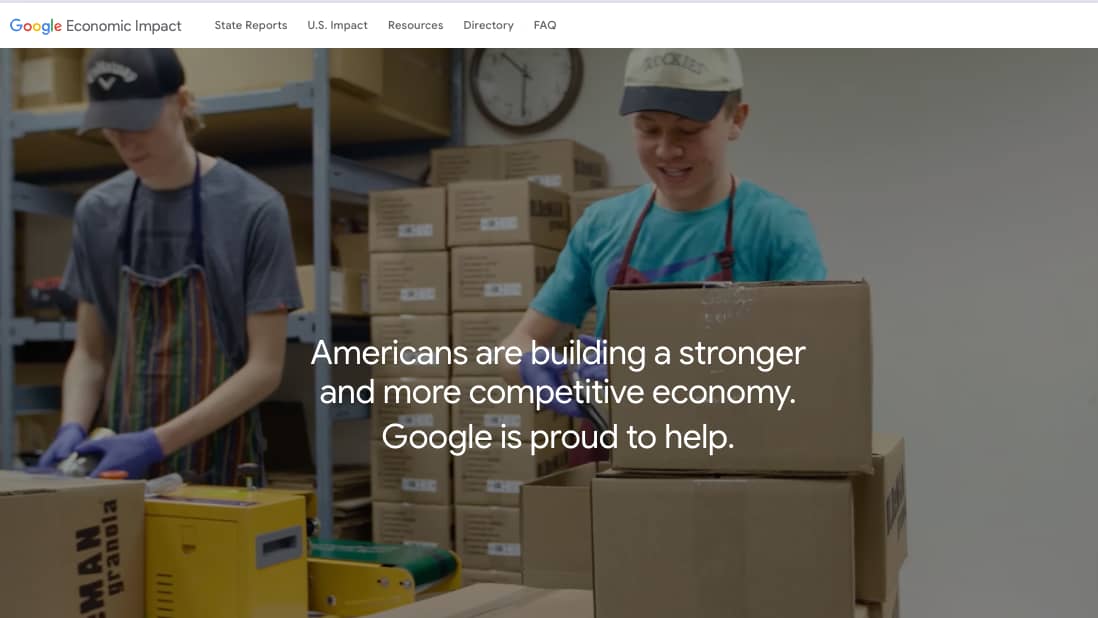Geoff Oddie
Front End Engineer
About Me
Content Connections
Modernized affiliate-tracking platform for publishers
Content Connections enables publishers to create and manage affiliate-tracking sites for their properties. Each site generates a unique ID and JavaScript snippet that can be embedded on pages to track product link performance. Publishers can customize tracking options and view detailed performance metrics for each property.
I led the modernization of a legacy Django and jQuery application, rebuilding it from the ground up with Next.js and React. I implemented Firebase Authentication to replace the outdated login system and migrated the UI into modular, reusable components.
For analytics, I developed dynamic, color-coded charts using ShadCN UI and Chart.js, allowing users to visualize affiliate performance at a glance. Data fetching and caching were streamlined using SWR with API integration, resulting in a faster, more maintainable experience.
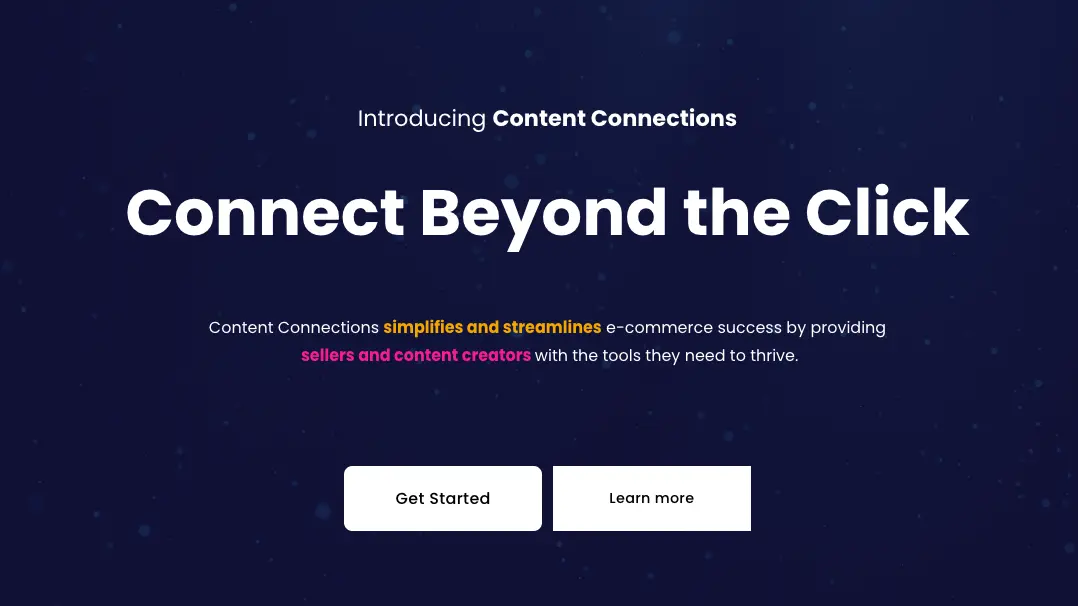
Ad Service
Internal platform for managing Facebook ad campaigns
Ad Service was built from the ground up to replace an existing internal advertising tool. Authentication and user management were handled through Firebase, supporting roles such as Super Admin, Editor, and Creative, each with tailored permissions.
The platform enables editors to quickly create and configure Facebook ad campaigns — defining audiences, budgets, and targeting — all within a streamlined interface. Once campaigns are set up, creatives can be assigned to craft ad copy and design visuals.
To speed up production, I integrated the Canva API, allowing creatives to generate campaign-ready graphics directly from predefined templates. Many processes were automated, dramatically improving turnaround time and ensuring consistency.
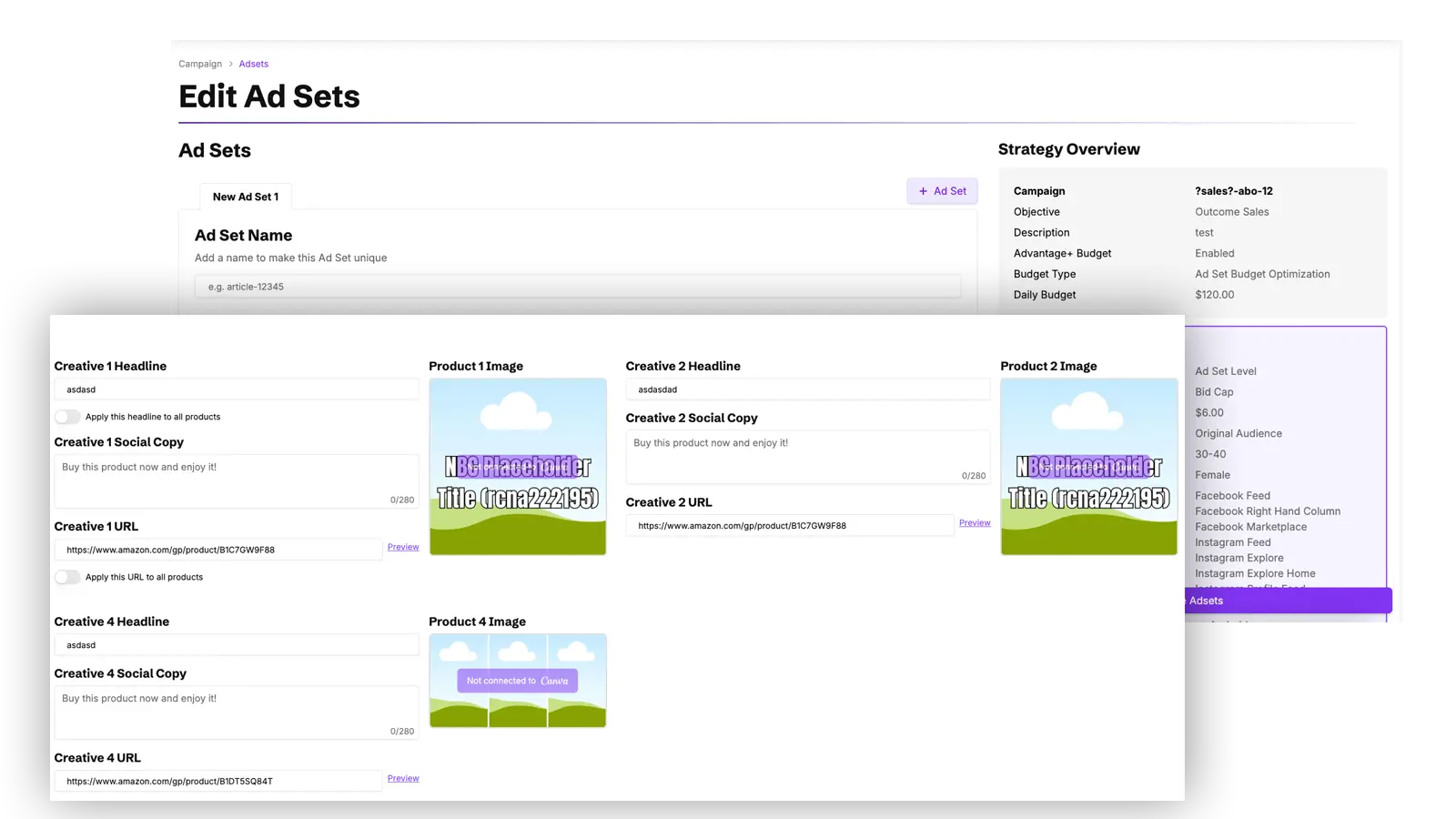
AI Client
High-profile redesign for a leading AI company
Due to NDA restrictions, I cannot name this client, but they are a globally recognized leader in AI. I joined to help develop new components and later became part of the core team responsible for a complete redesign and rebuild of the platform.
The site was built with Next.js and powered by Contentful CMS, so my work included designing and integrating new data models, connecting dynamic content, and ensuring seamless editorial workflows.
I focused on building high-performance, accessible, reusable components, collaborating closely with designers and backend engineers. By the end of the rebuild, I was recognized as one of the top GitHub contributors on the project.
I also had the opportunity to work on-site at the client’s headquarters during a special launch event — an exciting culmination of a high-visibility project.
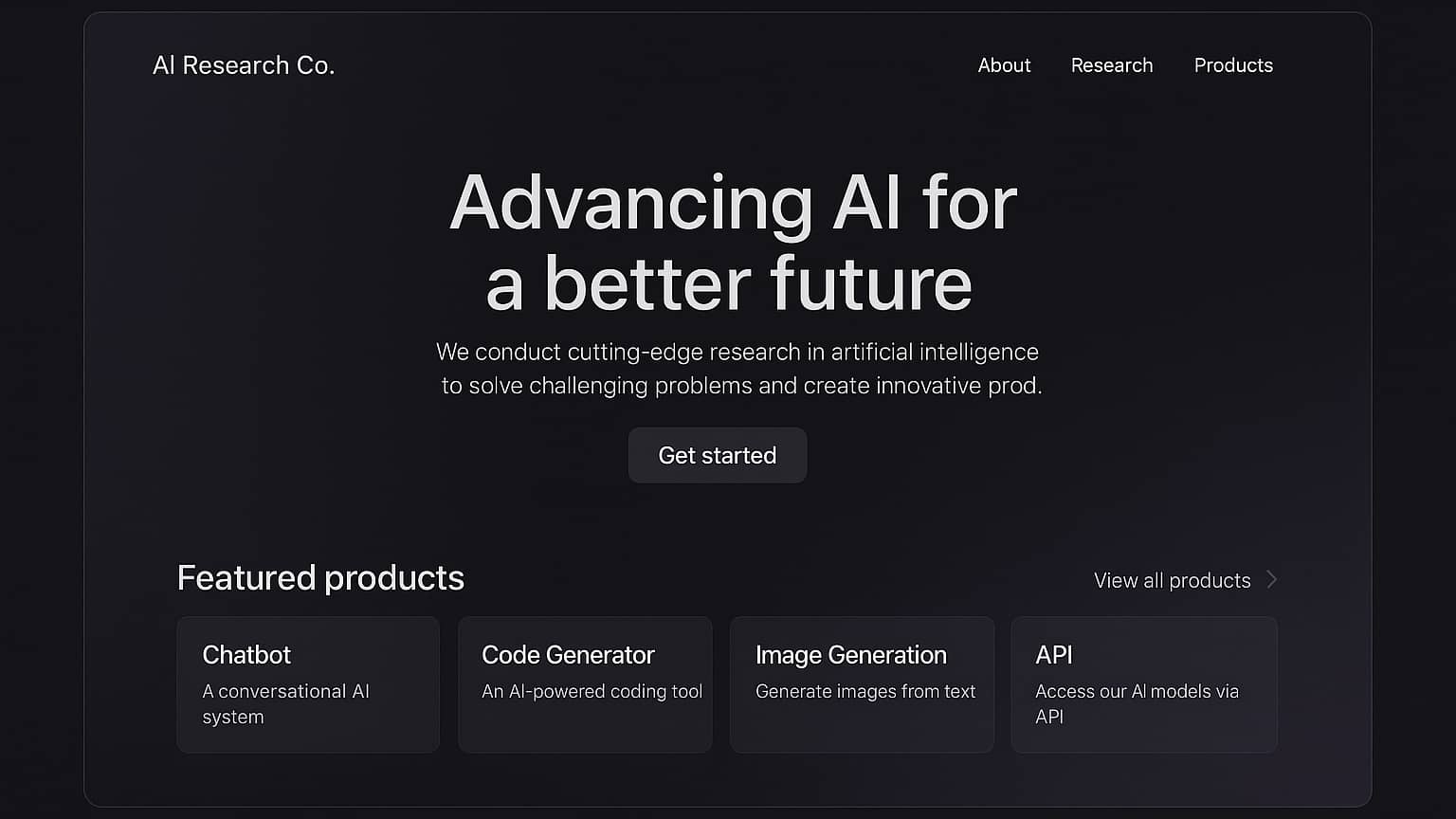
Nike Year in Review
Interactive data experience celebrating user achievements
This project created a personalized “Year in Review” experience that showcased users’ activity metrics and milestones. Built with React and Redux, it integrated with Nike Auth to securely deliver dynamic content.
Designers were encouraged to push visual boundaries — using gradients, textures, and rich motion design — requiring careful performance optimization to run smoothly on lower-end devices.
Despite the tight timeline, our team delivered a highly polished, data-driven storytelling experience that captured the energy and innovation of the Nike brand.
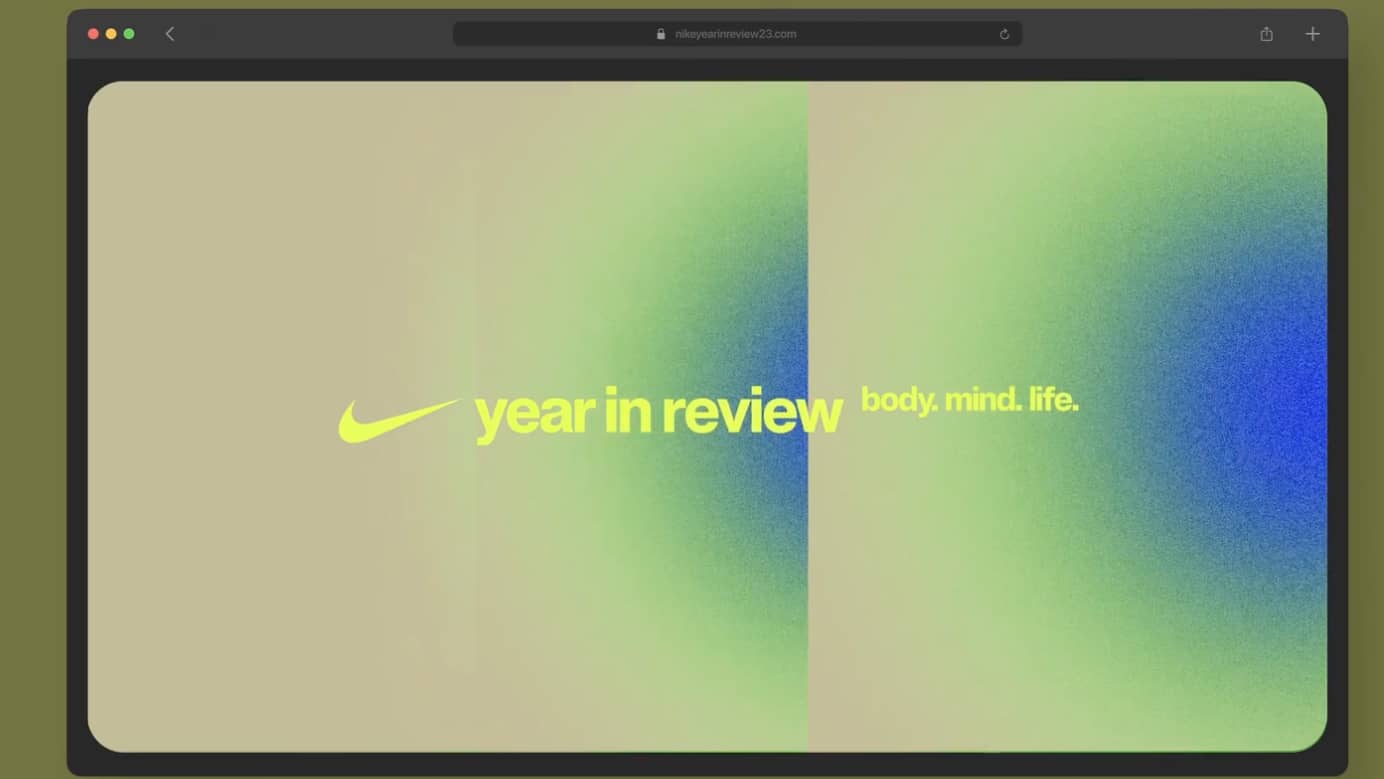
Google Campus
Rebuild of Google’s Startup Campus website
A complete rebuild of Google’s Startup Campus site supporting entrepreneurs worldwide. As lead front-end developer, I built the experience using Google’s internal design system and frameworks.
The build integrated with Google’s internal CMS, translation tools, and Django templates, and was deployed to Google Cloud Platform (GCP). Advanced functionality used Google Closure and custom templates.
This was a highly collaborative, detail-oriented project emphasizing performance, accessibility, and strict brand standards.

Waze
Integration and rebuild within Google’s ecosystem
After Google acquired Waze, the site needed to be rebuilt within Google’s internal ecosystem. As lead front-end developer, I architected and implemented the new build using Django templates and GCP.
Challenges included cross-timezone collaboration and integrating multiple Waze APIs to surface real-time data. I also migrated content into Google’s CMS, creating a scalable data model for future updates.
The result was a performant, maintainable site fully aligned with Google’s infrastructure.
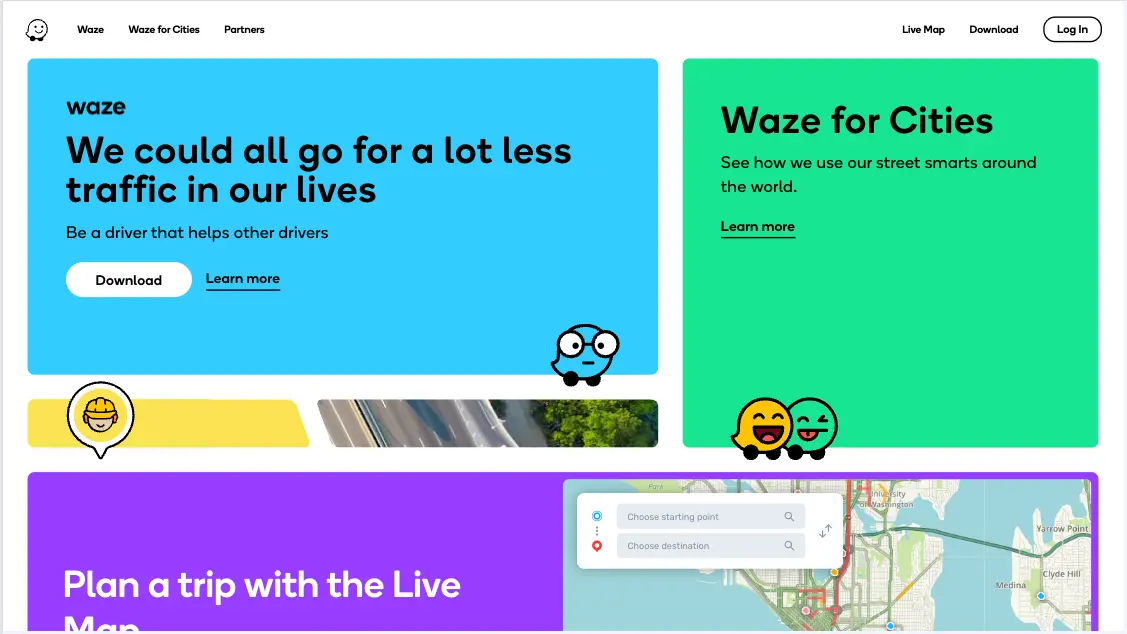
Google for Games
Immersive, interactive site for Google’s game developer division
An ambitious project built for Google’s Game Developer division with the goal of pushing the limits of both design and technology.
Developed within GCP and Django templates, we integrated WebGL and Canvas-based 3D animations, collaborating closely with 3D artists to bring interactive moments to life.
The result was a visually rich, high-performance experience that combined cutting-edge graphics with Google-grade engineering.
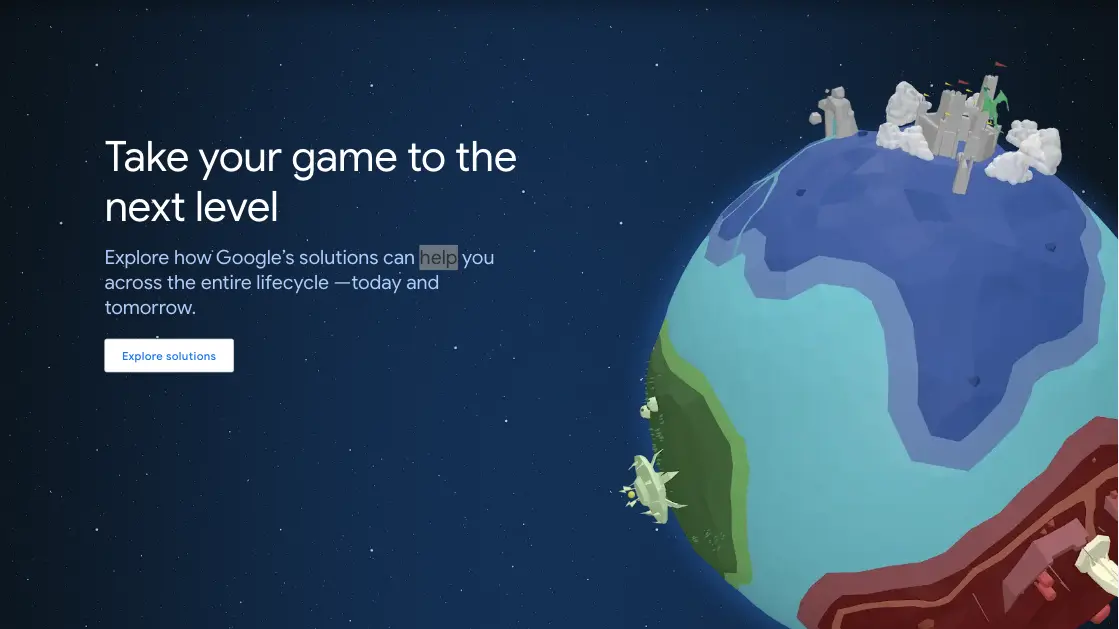
Google Real Estate
Showcasing Google’s community-focused campus development
This site showcased how Google’s real estate and campus projects benefit both employees and surrounding communities. Built using GCP and Django, it blended storytelling with data visualization.
Despite design constraints from an external agency, our team translated the creative into a high-performance, accessible front-end aligned with Google’s standards.
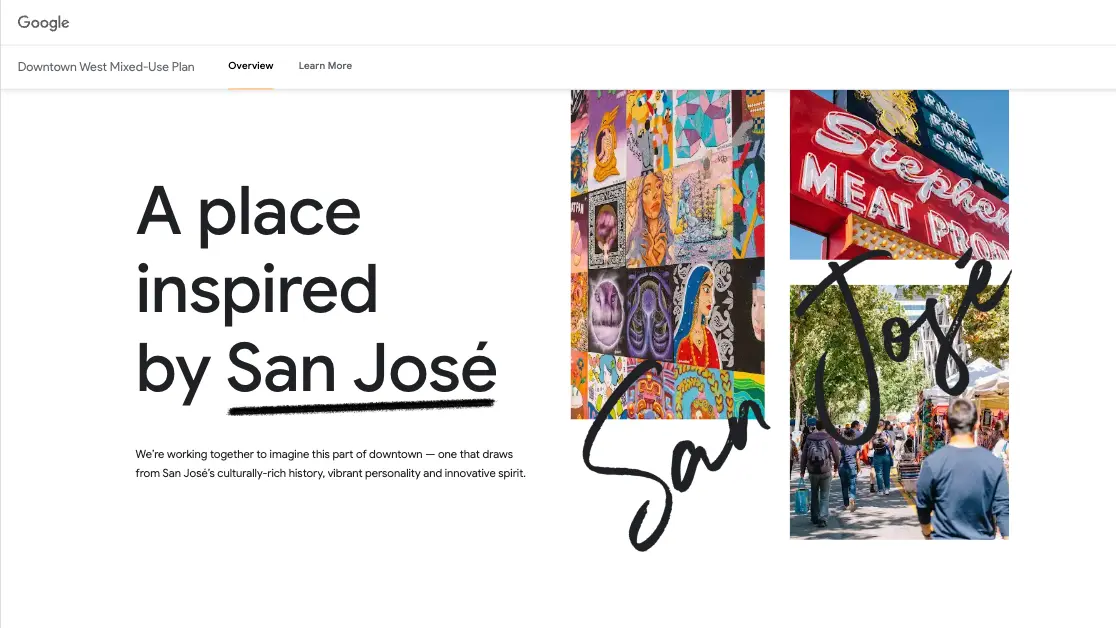
Eblock
Flexible CMS-driven rebuild for an automotive marketplace
Eblock approached us to rebuild their website with a scalable, easy-to-manage CMS. As lead and sole developer, I architected the solution with Next.js, React, and Contentful.
I implemented a modular page and component system allowing the client to build pages using pre-built components — offering full flexibility without developer intervention.
The result was a fast, maintainable, content-driven site that empowered the client’s internal team.
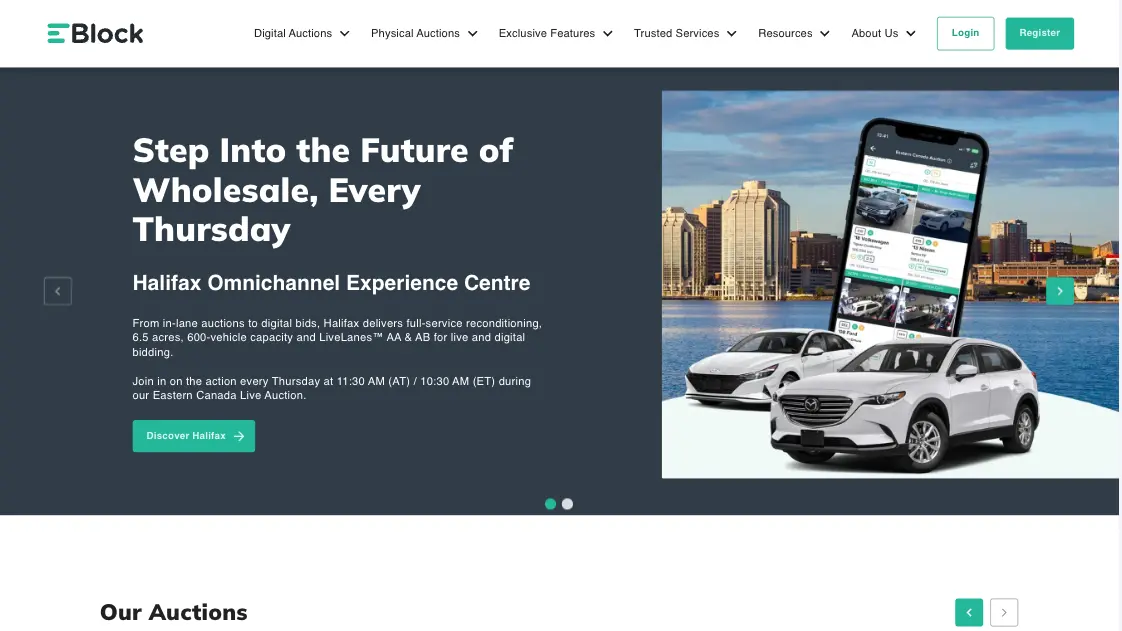
Economic Impact Report
Data-driven storytelling showcasing Google’s nationwide impact
This project visualized Google’s economic contributions across the U.S. with interactive data and state-by-state metrics. Built with GCP and Django, it turned complex information into an accessible interface.
Managing a large, irregular data set from multiple sources was a core challenge. I helped design a flexible CMS data model that enabled rapid, accurate updates under tight deadlines.
The result was a robust, scalable platform balancing data integrity, editorial speed, and performance.
